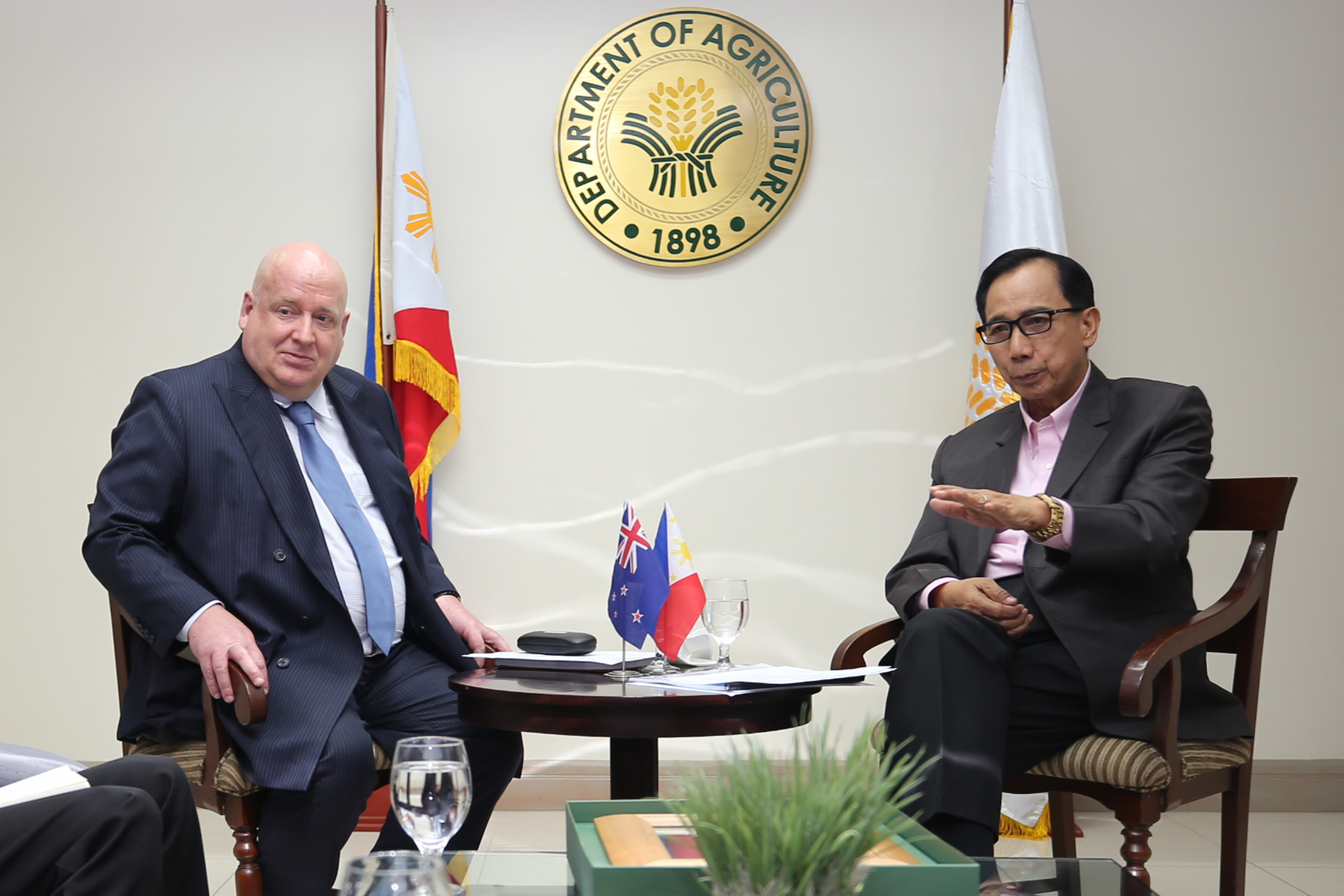
“While we are in a liberalized regime, we would like also to see balance in trade that we don’t want to bring in imported onions if we have enough produce from our local farmers,” said Agriculture Secretary William D. Dar to New Zealand Ambassador to the Philippines David Strachan during a courtesy visit on September 3, 2019. One of the key issues discussed was market access of NZ onions to the Philippines.
Onion is an important horticultural export of New Zealand, next to kiwifruit and apples. The country has expressed a strong interest in exporting their onions to the Philippines.
In March 2019, the Department of Agriculture suspended the importation of onions, and through the Bureau of Plant Industry (BPI), it has not been issuing import certificates since October 2018.
During the meeting, Dar recognized the assistance that NZ has been providing the Philippines particularly, its huge contribution to the dairy industry. However, he said that there are measures that need to be considered in such a way that the local onion industry will not suffer.
“We understand our role under a world trade regime but we also need to consider the interest of our local farmers. We want them to be competitive, productive, and prosperous at the end of the day,” the agri chief said.
Dar aims for a balanced trade considering other regulatory and non-tariff measures that can be looked at along the process.
“Free trade is the name of the game but at the same time, we need to manage it well that while trying to elevate the game we are not putting down our local farmers to the point that they can no longer resurrect,” Dar said.
Having been considered New Zealand as the Philippines’ “big brother” in the economy, Dar encouraged Ambassador Strachan to help the country to grow technically by sharing their technologies so that the local farmers can compete with the rest of the world.
“I hope you can also help us in making our local farmers more competitive by sharing technologies that you have, because at the end of the day, what we produce is also what we are competing with the rest of the world,” Dar concluded. ### (Rita T. dela Cruz)













